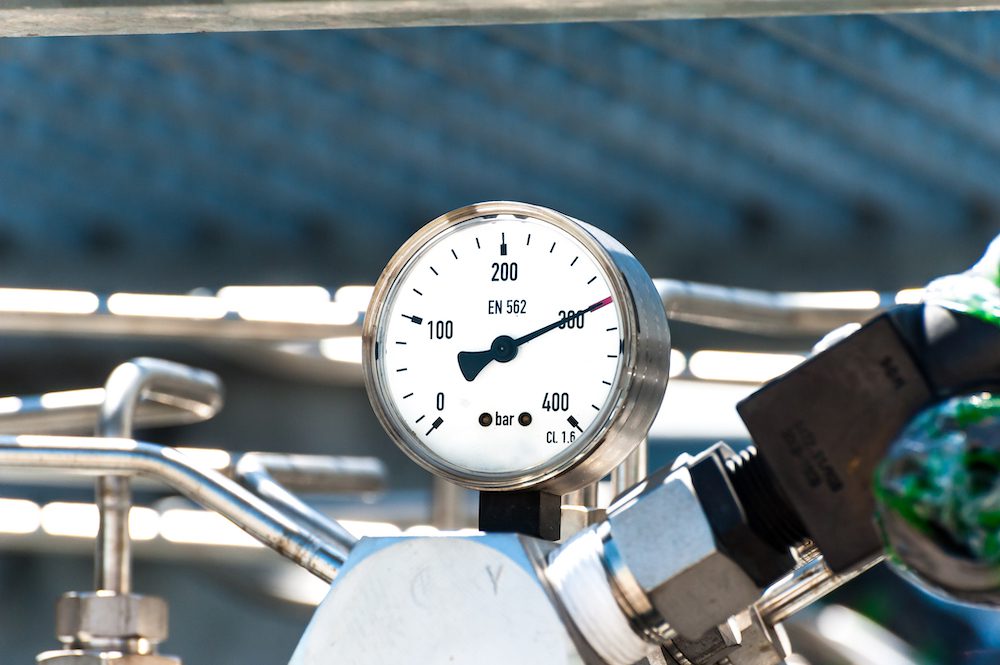
When it comes to mechanical systems such as boilers, chillers, and air handlers, pressure vessels are designed to hold gasses or liquids at high pressures. However, if these vessels develop leaks or cracks, they can become potentially dangerous, posing significant risks to health and safety.
In this article, we outline the top three risks of cracked or damaged pressure vessels, and why it’s crucial to schedule ASME pressure vessel repair services with a certified welding company that is trained to get the job done right!
Risk 1: Health & Safety Hazards
Leaking pressure vessels can pose serious threats to the wellbeing of employees and the public, especially in industrial settings where hazardous chemicals may be present. The release of these chemicals can cause poisoning or suffocation from inhaling harmful gasses during pressure release, putting individuals’ lives at risk. Addressing the issue of a cracked pressure vessel immediately is crucial to avoid any harm to you or anyone in your facility.
Risk 2: Explosion Damage
In addition to health and safety risks, there is also the potential for explosion damage. The contents of a pressure vessel are at substantially different pressure levels than the ambient pressure. A crack or damage to the vessel can make maintaining proper pressure challenging, leading to dangerous situations that can cause extensive damage or even fatal accidents. The effects of a pressure vessel explosion can be catastrophic, leading to loss of property and even lives. As such, it’s critical to address the issue of a cracked pressure vessel immediately to avoid any damage to property or loss of life.
Risk 3: Downtime & Loss of Revenue
When a mechanical system goes down due to a leaking pressure vessel, it can have significant consequences for your business. The longer the system is out of commission, the more revenue you stand to lose. The financial impact can be particularly severe in industrial facilities, where downtime means a loss of production and a reduction in overall efficiency.
Every hour that your mechanical system is down due to a cracked pressure vessel is an hour of lost productivity. And it’s not just the cost of lost productivity that you have to worry about. If your system is down for an extended period, it could also cause delays in your production schedule, leading to missed deadlines and dissatisfied customers.
Moreover, if the leak from the pressure vessel goes unnoticed or unrepaired, it can also lead to additional damage to other components of your mechanical system. This can further increase the cost of repairs and lead to even more downtime.
This is why facilitating necessary repairs as quickly as possible is crucial to minimize the impact of a leaking pressure vessel on your business. By addressing the issue immediately, you can avoid costly downtime, keep your production on schedule, and maintain your reputation for reliability and efficiency.
If you’re worried about the risks of pressure vessel failure, and the impact it could have on your business, it’s essential to be aware of the warning signs that could indicate a cracked pressure vessel. By regularly inspecting your mechanical system and knowing what to look for, you can detect any issues early and take immediate action to avoid costly downtime and repairs.
Detecting Cracked Pressure Vessels: Warning Signs to Look For
Knowing the warning signs of a cracked pressure vessel comes with the territory of overseeing your facility’s mechanical system.
One way to ensure that you detect cracked pressure vessels early is to have regular inspections performed by a certified welding inspector. A certified welding inspector can quickly identify any visible signs of cracks or damages, and provide the necessary advice for repair or replacement. Be sure to schedule an inspection for your pressure vessel once every five years.
Other warning signs to watch out for include unusual noises such as hissing or popping, visible damage such as dents or bulges, fluid leakage, pressure changes, and unusual odors like sulfur or rotten eggs.
At Moore’s, our certified R Stamp welders (a required certification for R stamp welding) and on-staff certified welding inspector can help you identify, repair and maintain your pressure vessels, ensuring that they meet all code requirements set by the National Board of Boiler and Pressure Vessels.
Protect Your Business With Certified ASME Pressure Vessel Repair!
Don’t risk your safety or revenue by ignoring a damaged or leaking pressure vessel. Contact us today to repair your pressure vessel and keep your mechanical system running smoothly!